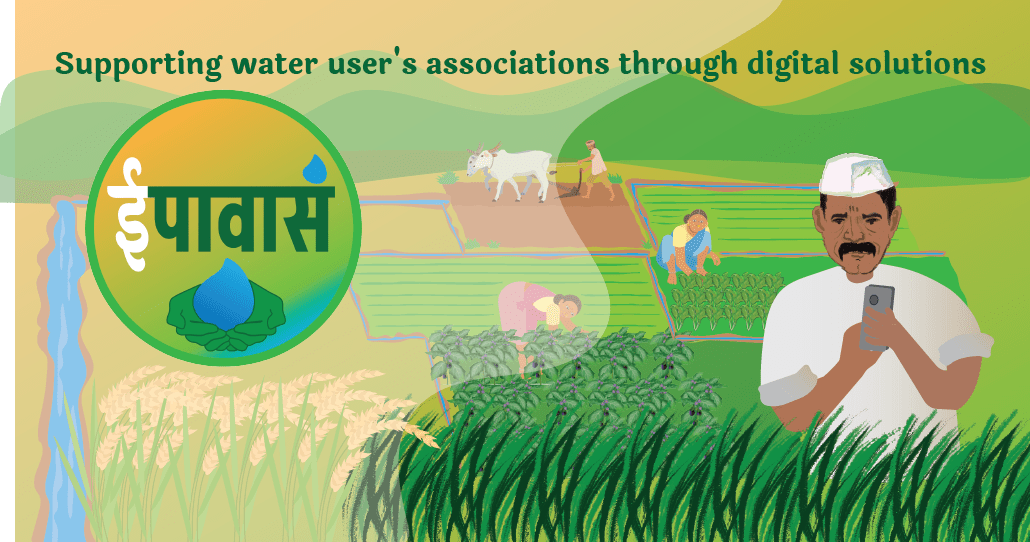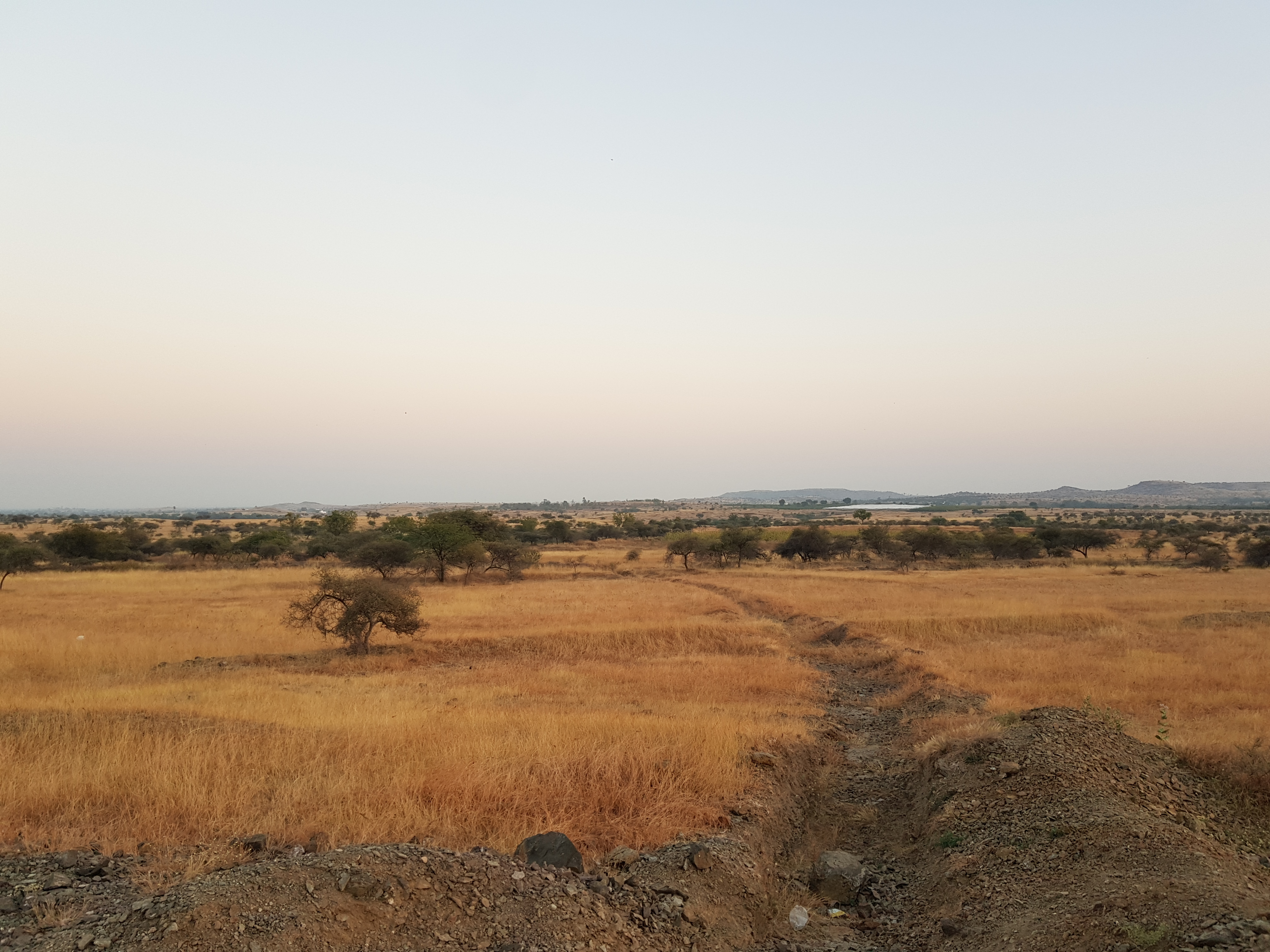Strengthening water user associations through digitalization: A field experiment in Southern Maharashtra
There is an urgent need for equal water access in India, which is why TMG and SOPPECOM have partnered to strengthen their water management capacities through digital technologies.
by Larissa Stiem-Bhatia (TMG Research), Neha Bhadbhade (SOPPECOM) | 2024-02-27

India ranks among the worst affected countries by climate change with severe effects on water. By 2030, water demand is projected to double compared to supply, posing significant threats to livelihoods, health, the economy, and ecosystems and exacerbating conflicts around water.
Maharashtra – a state comparable in surface area to Germany – grapples with chronic drought in one third of its talukas (cluster of villages), intensifying water stress across the region. The uneven distribution of water usage among farmers further exacerbates the issue, with larger landholders often claiming disproportionate water rights, undermining equitable access. Another prime example lies in sugarcane farming. Approximately 1.1 million sugarcane farmers cultivate this crop on just 4 percent of agricultural lands yet consume a staggering 70 percent of available water for irrigation in Maharashtra.
Recognizing the urgent need for sustainable water management, the Berlin-based TMG Think Tank for Sustainability and Maharashtra-based non-governmental organization SOPPECOM have partnered to address the challenges of unequal water access. Through the SEWOH Lab project, we support local Water User Associations (WUAs) in achieving effective and inclusive water governance, particularly focusing on irrigation management in Atpadi, Southern Maharashtra. Mandated under the Maharashtra Management of Irrigation Systems by Farmers Act, 2005, WUAs are a group of farmers and legally registered association functioning as a key institution in participatory irrigation management.
Atpadi, spanning 86,400 hectares with over 1.5 million residents, serves as a compelling pilot site. Located in the central-eastern drought-prone area of the Krishna River basin and within the rain-shadow of the Western Ghats, the region witnessed severe drought in 2012, 2016 and 2019. Atpadi is a beneficiary of the Tembhu Lift Irrigation Scheme. This scheme operates by conveying water from the Krishna River via a lift system to irrigate segments of the drought-affected areas on the eastern side of the river.
In the quest for supporting WUAs in Atpadi, we explored possibilities of strengthening their water management capacities through digital technologies. This gave rise to the development of the customized app e-Pavas. E-pavas (ई- पावसं) stands for “electronic paani vaapar sanstha”. This Marathi-named app, meaning "electronic water user association," serves a dual purpose: improving transparency within WUAs and ensuring equitable water distribution irrespective of landownership or caste. Equitable water distribution in this context means that each household receive about 5,000 cubic meters of water in a year for agricultural activities.
The app's features, established after extensive consultations with farmers and WUA board members, include monitoring water demand for effective water budgeting and crop planning, and reporting grievances related to water access and system leakages. Data entered by farmers is visualized on a dashboard, aiding evidence-based decision-making and facilitating water entitlement claims vis-à-vis the district-level irrigation department. Beyond the local level, the generated data could also be used for larger advocacy for supplying water in drought-prone areas with state government.
The app's launch in December has seen significant uptake, with nearly 600 farmers, representing 80% of two WUAs, downloading it. Farmers report its ease of use, prompting interest from other WUAs for implementation. However, challenges persist, including the lack of computer infrastructure in many WUAs for wider data analysis and administration. While SOPPECOM currently provides support, efforts are underway to empower WUAs for autonomous data management, ensuring project sustainability.
In 2024, our commitment to supporting the Water User Associations in Atpadi continues, among others through the utilization of e-pavas. It is crucial to emphasize that we view digitalization not as a goal in itself, but as a tool to empower farmers and land users, enabling them to make informed decisions. We aspire that our assistance to the WUAs and the adoption of e-pavas will ultimately foster sustainable, effective, and inclusive water governance, promoting climate-resilient agriculture.

Photo: Landscape in Atpadi during dry season by TMG Research gGmbH
Disclaimer: This initiative is part of the “SEWOH Lab” project that focusses on combining digital technologies with social innovations. Its overarching objective is to support the progressive achievement of SDG2, with a particular focus on food system actors such as smallholder farmers, indigenous peoples and people residing in urban low-income areas and informal settlements. The project is funded by the German Federal Ministry for Economic Cooperation and Development.
 Urban Food FuturesFeb 09, 2026
Urban Food FuturesFeb 09, 2026Pushing the horizon: Urban farming and community-led innovation in Mukuru informal settlement
A small community-run greenhouse in Mukuru is offering insights into how controlled-environment agriculture can strengthen food security in urban environments under increasing pressure—and a look into the future of food systems in informal settlements.
Christian Sonntag, Emmanuel Atamba, Lumi Youm
 Land GovernanceDec 18, 2025
Land GovernanceDec 18, 2025Land tenure, women’s land rights, and resilience: Reflections from CRIC23 toward UNCCD COP17
Our experts discuss what the exchanges at CRIC23 highlighted and revealed about the role of secure and gender-equitable land tenure in the UNCCD's work ahead of the 2026 triple COP year.
Frederike Klümper, Washe Kazungu
 Urban Food FuturesDec 09, 2025
Urban Food FuturesDec 09, 2025The story of Mukuru's Urban Nutrition Hub
In Mukuru informal settlement, a safe haven for women has grown into the Urban Nutrition Hub, a multi-purpose space for nutrition education, training, and community development, demonstrating the potential of grassroots community-owned innovation..
Serah Kiragu-Wissler


